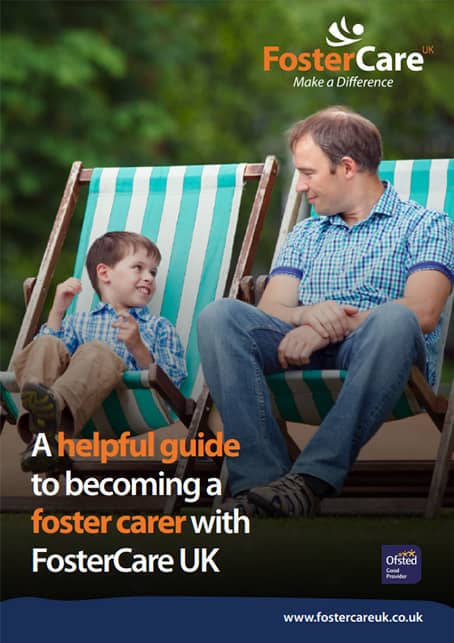


What happens when a child is taken into care?
Benefits of being a foster parent
What is a care leaver?
How to become a foster parent
How to foster a child
What are the foster care requirements
Can I choose who I foster?
Fostering with pets FAQ
How long does it take to become a foster parent?
What is the role of an independent fostering agency?
Fostering a disabled child
Tips for coping when foster placements end
Do foster carers pay tax?
What to expect in a fostering assessment
Common Fostering Challenges and Solutions
What disqualifies you from being a foster carer?
Muslim Fostering
Fostering as a single parent
Can you foster a child with a criminal record?
Can you work and foster?
Top 10 fostering myths
Can I foster if…?
Can I foster and rent?
LGBT Fostering: can I foster if I’m gay
Top transferable skills to become a foster carer
Can you foster with a mental health condition?
Christian Fostering
Sikh Fostering
Cultural Diversity in Foster Care
How to encourage foster children to read
Reasons for a child to be taken into care
Tips for coping with attachment disorders in Foster Children
Fostering vs Adoption
What happens when foster parents get divorced?
What is reunification in foster care?
How to deal with foster child bullying
A guide to the foster care handbook
Guide to fostering young children
Types of self-harm
A guide to fostering teenagers
What are the signs of depression in foster children?
Children in foster care may have experienced hardship and trauma in their past, before they enter the foster care system.
There are many reasons for a child to have been taken into foster care, including neglect or abuse, which can impact your foster child’s mental health whether they are in short-term care or long-term care.
In this guide, we’ll help you to identify the signs of depression in foster children and how best to help them.
Though symptoms of depressions present differently from child to child, there are some signs you can look out for, including:
In more extreme cases, depression can become more serious and display signs such as:
If you suspect your foster child is dealing with depression and present any of these signs, it is important to help support them the best way possible.
As a foster carer, your role is to offer guidance, love and support though this may seem more difficult as your foster child suffers with their mental health. However, there are many things you can do to help, such as:
Communication – keeping an open mind and encouraging open communication can help your foster child to feel safe enough to tell you how they feel and the thoughts they may have. Remember to avoid judgement to allow for complete honesty, as well as respecting boundaries. As much as you may want to communicate, your foster child may not find it as easy to do so, so be sure to not force communication and remind the child in your care that you are available whenever they are ready and willing.
Be present and connected – isolation and avoidance can make your foster child feel shut out and encourage them to keep to themselves. Remember to remain present and connected to your foster child by spending quality time together, making plans to provide them with something to look forward to and encourage them to partake in their usual hobbies or interests. This will positively benefit their mental health in the long-term.
Inform family – depression can be difficult to navigate for everyone involved, though we encourage you to inform family members who are around your foster child. This will help to alleviate any stress or anxiety they may be feeling and will help to create a healthier home and living environment.
There is a wealth of external support available for foster children with depression, to help with their mental health including:
At Foster Care UK, we understand that depression is a challenging and sensitive topic that can be difficult to navigate. That’s why we offer therapeutic fostering, which is designed to support young people and children who have complex issues such as trauma, abuse or depression.
Therapeutic foster care trains foster parents in this area to help deal with foster children who have complex needs most effectively.
For more information on our fostering training and support services, or to start your journey to becoming a foster carer, simply get in touch on 0800 012 4004 or fill out our online contact form where our friendly team are happy to help.
If you’ve got any questions or would like to find out more about fostering with Capstone, fill out the form below.
An experienced fostering advisor from your local area will then be in touch.

Start the conversation today. Our team of friendly advisors are on hand to answer any foster care questions you may have. We can offer you honest and practical advice that can help you decide if becoming a foster carer is the right path for you.


